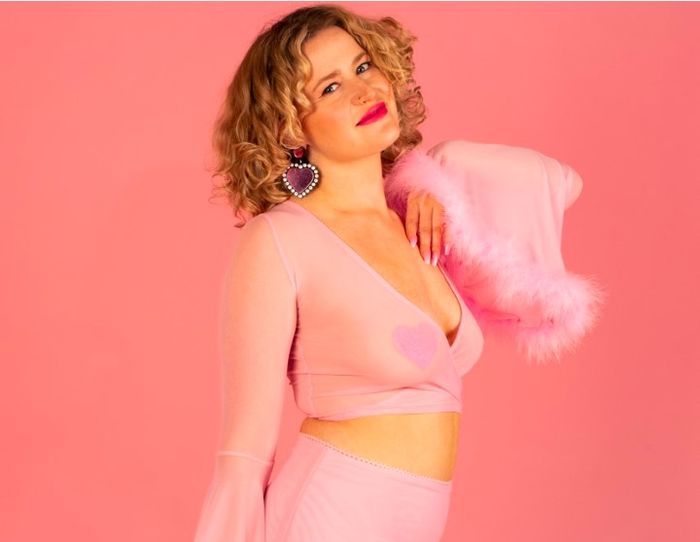‘Extreme sex positivity can make people feel shame’: sex educator and YouTube star Hannah Witton
Varsity chats to the online sex educator about the future of sex education for young people

With over 700,000 YouTube subscribers and 100 million views, Hannah Witton’s friendly and accessible approach to all things sex and relationships has made her one of the UK’s most prominent online sex educators.
Like many sex educators, Witton’s career path stemmed from having a non-inclusive and incomplete sex education in school. In 2020, new policies were put in place in the PSHCE (Personal, Social, Health and Citizenship Education) curriculum in UK schools, making relationships education compulsory in primary schools, and Relationships and Sex Education (RSE) mandatory at secondary level. Schools are encouraged to teach topics like consent, diverse family and relationship models, exploitation, and mental health. However, due to pandemic-related delays, we are only beginning to see these changes come to fruition, and what RSE teaching looks like varies from school to school. Witton calls compulsory RSE in schools a “huge win”, but recognises that “there is still more fighting to do.”
Witton indicates that “there is no mention of pleasure whatsoever in the [new] guidance”, deeming the support and resources given to schools “insufficient.” However, Witton praises individual schools’ work, and eagerly promotes the efforts of sexual wellbeing charities like Brook and School of Sex Ed. Nonetheless, Witton knows that producing a comprehensive sex education for all individuals is a huge task — one content creators can’t do alone. Therefore, she deems RSE at school necessary, because there is no guarantee that young people will do their own research to fill in gaps. “Whilst online education is mostly free and accessible, not everyone who needs it is accessing it [...] Sex education in schools and at home is vital because it allows young people to have a back-and-forth, explore ideas, and for it to be culturally and specifically relevant to them and their needs.”
Witton does not claim to be an omniscient sex educator, instead acknowledging her position as an individual with unique experiences and views. “I try to ensure inclusivity in my work in the language I use, but also in the people I collaborate with, or have as a guest on my podcast, [Doing It].” Platforming diverse voices is not only crucial for sufficient depth and breadth of sex education, but for sexual welfare.
“Make an effort to make all interactions consensual, it helps it to translate to the bedroom”
As Witton steadfastly supports sex positivity, I ask whether she believes it can ever go too far. “Extreme sex positivity can sometimes make people feel shame for being ‘vanilla’, asexual or not having had a sexual experience yet,” Witton acknowledges. “Sex positivity should (and does) include these experiences, and allows space to experience sexuality free from shame, in whatever way is true to you.”
While many sex positivity campaigns, due to their anti-patriarchal aims, are directed towards female and non-binary young people, Witton points out that the “assumption that all men are interested in sex all the time” can make many men who experience low desire, or are asexual, feel they are not adhering to the ‘right’ form of masculinity.
How can we encourage sex positivity and safety for university students in Cambridge and beyond? Harking back to her years at the University of Manchester, Witton endorses a “culture of consent” that transcends sex and relationships. “When I think back to my student life, there was pressure to go out, pressure to drink, pressure to just do what the group is doing or ‘down it fresher!’ Consent was not given a second thought. When you start to really make an effort to make all interactions consensual, it helps it to translate to the bedroom.”
Witton’s own relationship with sexuality changed in 2018, when ulcerative colitis resulted in her needing an ileostomy (which she has affectionately named ‘Mona the stoma’). “Becoming disabled has made my sex education more inclusive for sure, and also helped to expand my definition of sex”, she notes, reminding us that “health and disability is a spectrum, and everyone at some point will experience some kind of health thing, even if it’s ageing” that will impact their relationship with sex.
Witton also clarifies that mental health is as important as physical health. “Mental health can impact our sex lives, and vice versa. Self-esteem, anxiety, eating disorders, and many other mental health issues impact how we feel about ourselves, how we feel in our relationships, and how we feel and function in sex.”
As Witton is a huge fan of personality quizzes, it felt only fitting to end the interview by asking for a recommendation. Witton encourages readers to find their personal love language: “The idea is that we all give and recognise love in different ways, and so if you find yourself in a relationship where you’re saying ‘you never show me that you love me!’ It might actually be that they are showing you in a different language to yours.” The quiz applies both to romantic relationships and relationships with friends and family. “It’s really important to be able to speak each other’s love languages so you can express how you feel in a way that will be understood and appreciated.”
 News / Cambridge academics stand out in King’s 2026 Honours List2 January 2026
News / Cambridge academics stand out in King’s 2026 Honours List2 January 2026 Interviews / You don’t need to peak at Cambridge, says Robin Harding31 December 2025
Interviews / You don’t need to peak at Cambridge, says Robin Harding31 December 2025 Comment / What happened to men at Cambridge?31 December 2025
Comment / What happened to men at Cambridge?31 December 2025 News / Varsity’s biggest stories of 202531 December 2025
News / Varsity’s biggest stories of 202531 December 2025 News / Unions protest handling of redundancies at Epidemiology Unit30 December 2025
News / Unions protest handling of redundancies at Epidemiology Unit30 December 2025










